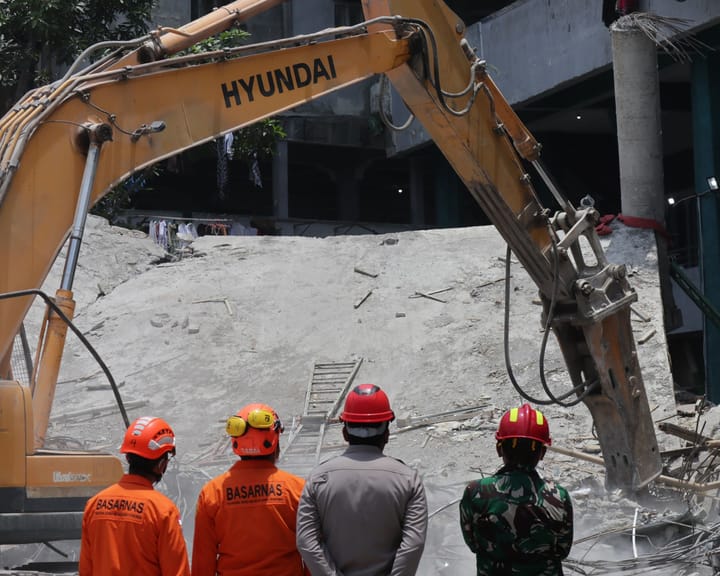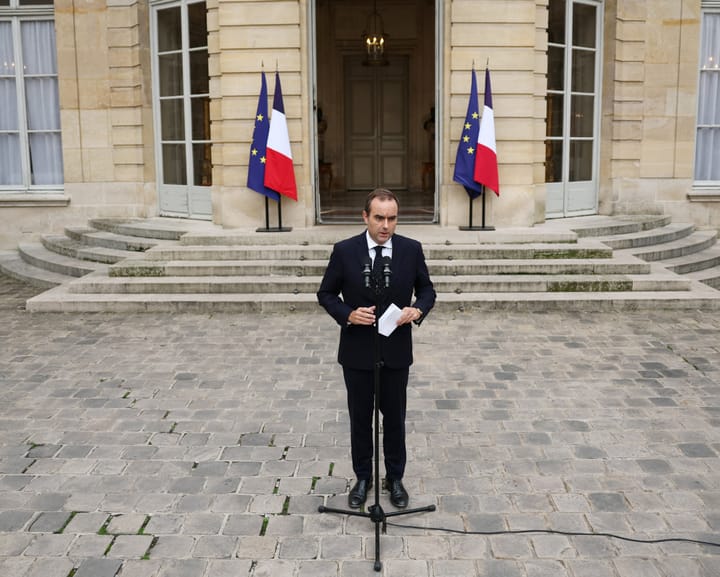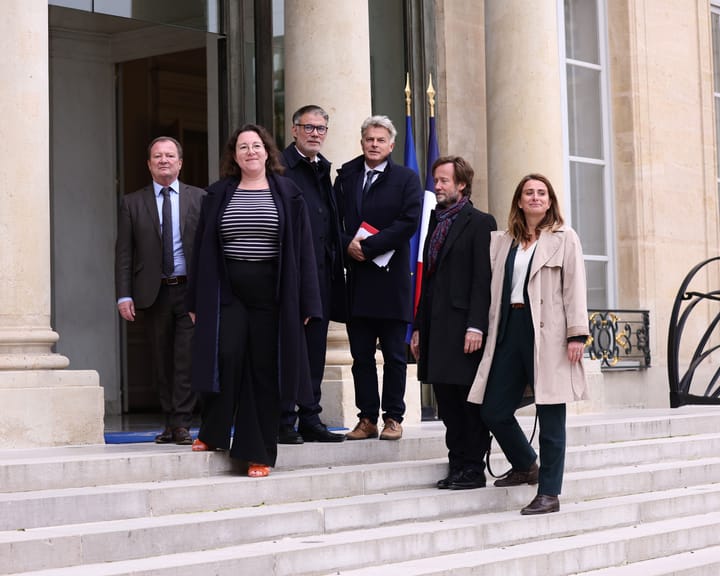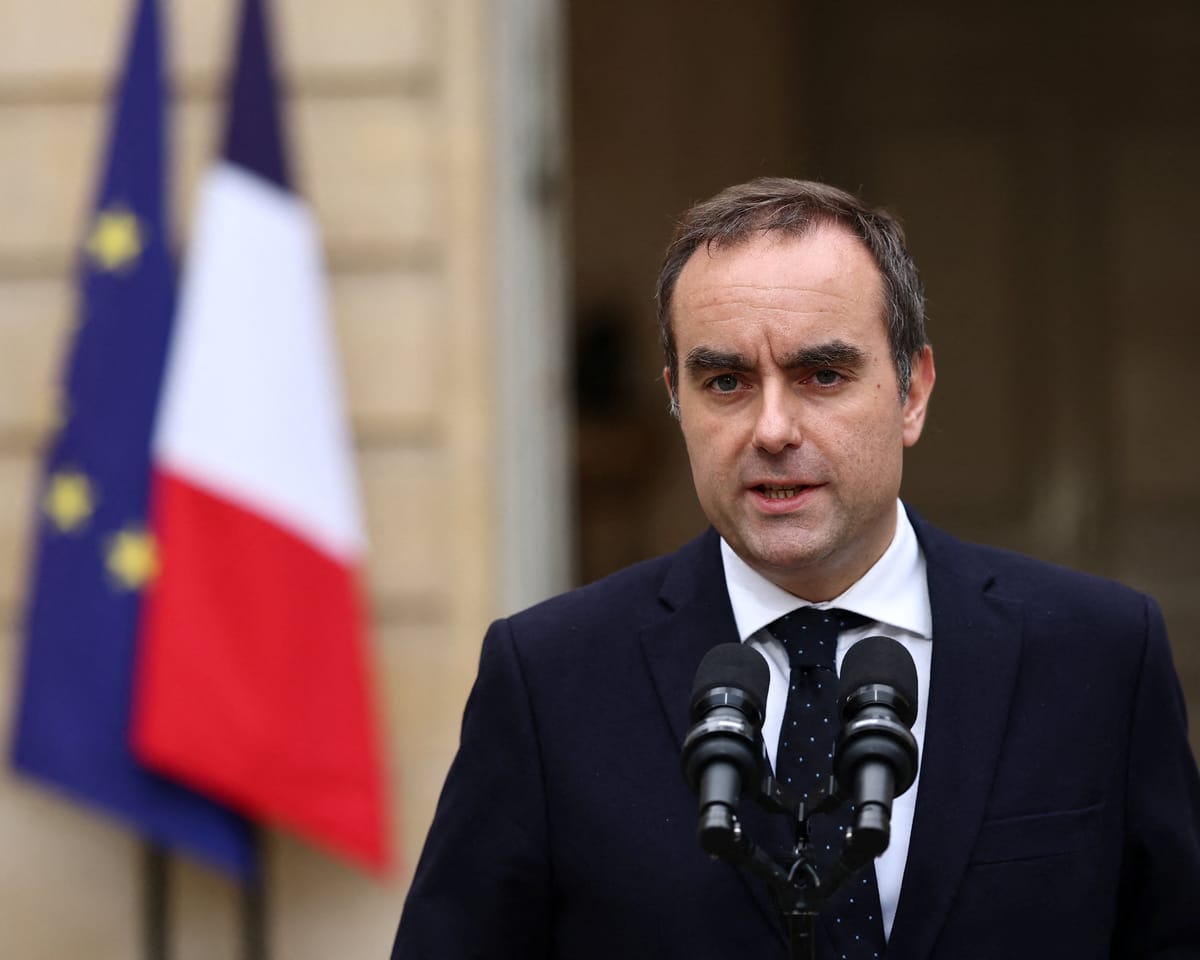France’s Interim Prime Minister Signals Progress on Budget Talks, Easing Election Fears
Sébastien Lecornu, France’s acting prime minister, stated that discussions with political leaders indicated a shared commitment to finalize a budget by year-end, reducing the likelihood of early parliamentary elections.
"These discussions have fostered a collective momentum, making the prospect of dissolving parliament less probable," he said during a short speech on Wednesday at Matignon Palace, the prime minister’s official residence in Paris.
Lecornu, who stepped down on Monday after 27 days in office but was temporarily retained by Emmanuel Macron to seek support for the government, confirmed he would submit his findings to the president later that day.
Macron, re-elected in 2022 for a second term, has faced political instability since last year’s snap elections left the National Assembly deadlocked, leading to the resignations of two previous prime ministers over stalled austerity budget proposals.
Lecornu became the third to resign after his government collapsed within hours of its announcement due to opposition from both allies and rivals, which he said rendered his position untenable.
He emphasized the urgency of curbing France’s growing budget deficit, projected to surpass 5.5% of GDP this year—far exceeding EU limits. "This is crucial for France’s international standing and financial credibility," he added.
Meeting with left-wing parties, including the Socialists, Greens, and Communists, Lecornu noted a consensus on reducing the deficit below 5% next year. These talks would determine "what compromises each side must make to ensure stability," he said.
Attention has turned to the Socialist Party after Lecornu hinted at suspending Macron’s contentious 2023 pension reforms—a key demand of the center-left. Socialist leader Olivier Faure cautiously welcomed the gesture, stating he needed to assess whether it represented a genuine concession or mere political maneuvering.
If the moderate left agrees to cooperate, a left-leaning cabinet supported by Macron’s centrist and center-right allies could emerge, though the latter remains staunchly opposed to any backtracking on pension reforms.
Lecornu’s abrupt exit marks the latest development in France’s ongoing political turmoil following the 2024 election, which fragmented the legislature into three nearly equal factions: the left, far-right, and Macron’s center-right alliance.
In recent months, Macron has encountered persistent resistance, underscoring the fragile balance of power in the current assembly.
Read next

"Indonesia school collapse: rescue efforts conclude with 67 fatalities"
Search Ends After Indonesian School Collapse Leaves Dozens Dead
Indonesian rescuers concluded their search on Tuesday for victims trapped beneath the rubble of a collapsed Islamic boarding school in East Java, after recovering more than 60 bodies, authorities confirmed.
The tragedy in the town of Sidoarjo struck last week when

"French PM makes last-ditch effort to save government as crisis deepens – Europe updates"
France's Political Standoff Continues as Prime Minister Seeks Cross-Party Support
France remains at a political stalemate as the outgoing prime minister, Sébastien Lecornu, makes a final attempt to gather support from rival parties for a new government.
President Emmanuel Macron assigned Lecornu, 39, to form a government in

"Macron calls emergency talks with parties to swiftly pick new PM"
Emmanuel Macron has called upon the leaders of several political factions to his office, urging them to demonstrate "collective responsibility" as he seeks to appoint a new prime minister amid growing political turmoil.
All parties except Marine Le Pen’s far-right National Rally, the largest opposition group, and

